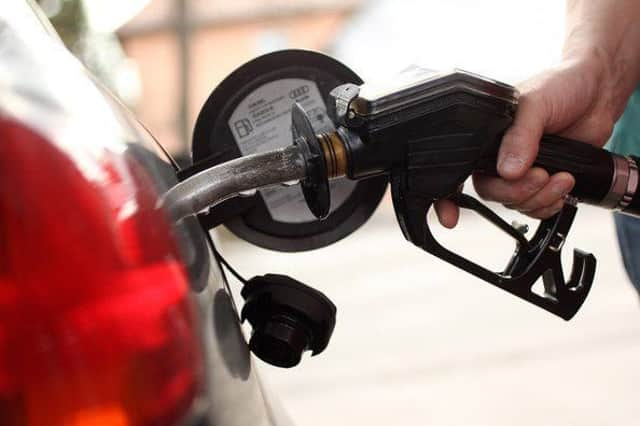Households still in tight squeeze compared to other UK regions


That’s the depressingly familiar finding of the latest Income Tracker survey from Asda.
Noting that disposable weekly income - the cash left after essentials such as rent or mortgages and utilites have been paid - remained stable at £105 this quarter, it says that figure remains almost half the national average of £202 per week.
Advertisement
Hide AdAdvertisement
Hide AdDespite the figures for Northern Ireland being up £7 per week on the same period last year, factors such as rising oil prices, higher inflation and a weakened pound have slowed the annual pace of growth to 7.9%.
The situation has been exacerbated by the greater dependence of the province as a whole on private transport.Motorists, for example, spend an average of £28.90 per week on petrol compared to the UK average of £19.90 the report said.
On a UK-wide basis, the rise in inflation to 1.6% put more pressure on families spending power; however it was cushioned by an equivalent increase in net income.
Up 2.3% year on year, family’s net pay meant that an increase in the prices of essential items didn’t affect their disposable income by as much.
Advertisement
Hide AdAdvertisement
Hide AdIn the three months to November, regular earnings growth was up 2.7% and unemployment remained steady at 4.8% which proved beneficial for family’s net income.
A good performance in the labour market meant that employees had a better bargaining power for their pay.
Food prices in December remained lower by 1.1% year on year, however month on month, food prices saw a 0.8% increase compared to November. And it is not only essential items that inflation is affecting, December also saw an increase in the cost of restaurants and hotels.
There was some relief on households as electricity and gas prices eased compared to those at the end of 2015, which helped keep household bills down. Low interest rates also helped to keep mortgage interest payments down, which were 6% cheaper year on year.
Advertisement
Hide AdAdvertisement
Hide AdOn a more positive note, Nothern Ireland, along with Yorkshire and the Humber recorded the second highest annual Q4 growth rates in disposable income with 7.9% each.
However, London remained at the top of the spending power list, with £275 of discretionary income in December, £73 more than the UK average. Scotland dropped back below the UK average in Q4, after posting stronger growth in the first three quarters of the year.
Kay Neufeld, an economist at the Centre for Economics and Business Research (Cebr) said: “Rising inflation is clearly weighing on the growth in spending power now. Price increases in most product categories reduce the spending power of UK households.
“This is most clearly visible in the rising prices at the pump – annual price inflation for fuel stood at 10% in December, the highest rate in nearly five years.”